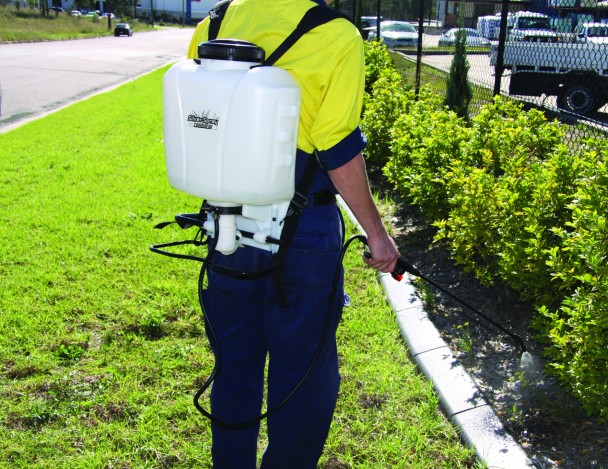Although pesticides have a certain number of advantages, such as effective and quick results, disadvantages surely outweigh them. Inappropriate use of pesticides can result in injury and death of the people exposed. Furthermore, they can cause harm to non-target animals and plants. Finally, pesticide misuse can lead to reduced air quality and the pollution of the entire ecosystem.
Prevention is better than Cure
Pull out all the weak plants as they are probably already infected and can attract pests. Strong plants, on the other hand, can be developed with the help of natural and organic compost. Another method for growing healthy plants is using a seaweed fertilizer coming in a mulch, or spray form. Rotating of the plants and their interplanting will reduce a number of insect pests as insects often attack specific plants. Wet foliage attracts pests, so consider drip-irrigation methods, or water plantings early in the morning. Disinfect all the tools you have been working with before you move on to other crops.
Manual vs. Mechanical Weed Control
Manual weed control, or hand-weeding is more beneficial than mechanical weed control – it cannot lead to soil disturbance, damage to native vegetation, or weed seed germination. Therefore, opt for hand-weeding and its two types – hand pulling and chipping. Hand-pulling is best done when the soil is moist and when weeds are still young. Use trowels to remove underground parts of the weed. If the soil is hard and if there are weeds with underground bulbs, consider a chipping method which includes digging out weeds using a chip hoe.
Homemade Remedies for Pests
Homemade pest control sprays are inexpensive, nontoxic and effective. An all-purpose spray includes the combination of 1 garlic bulb, 1 onion, 1 teaspoon of cayenne pepper, 1 tablespoon of liquid dish soap and 250 ml of water. Grind garlic and onion, add cayenne pepper and water. Steep the mixture for an hour and add liquid dish soap. Use a vinegar and salt mixture, or boiling water for stubborn sidewalk weeds.
Modern sprayers for sale allow you to effectively fight all types of pesticides. Choose the ones which have graduations clearly visible on the spray so that you can control the amount of the solution. Rechargeable backpack sprayers and sprayers fitted to a trolley are particularly convenient, plus they can save you money.
Environmental Management of Weeds
Moisture and nutrient control includes minimizing the level of moisture and water, which could help weeds thrive in the garden. Most commonly, water run-off from your plants accidentally supplies weeds with nutrients and moisture. In order to avoid it, use mulch, black plastic, commercial mats, or newspaper to overlay the weeds. Fire is another organic solution for weeds, but it requires permits and approvals. In addition, some weeds are fire-sensitive.
Benefits of Beneficial Insects
Beneficial insects are used to control pests naturally. They can be bought and placed in the garden so that they can prey on pests. Each specie attacks specific pests. A garden insectary is a small plot of plants specifically designed to attract beneficial pests. The Australasian Biological Control Association’s website Good Bugs contains all the relevant information on this method of pest control, including a list of beneficial insects in Australia and New Zealand, a list of suppliers and an introduction to Integrated Pest Management.
You can find organic and natural commercially available pesticides on the market. It is a common misconception that they are safer than synthetic products. Even though they are labelled natural, they can still be toxic. If you want to use them, you must comply with the regulations as you would do with their synthetic counterparts.
